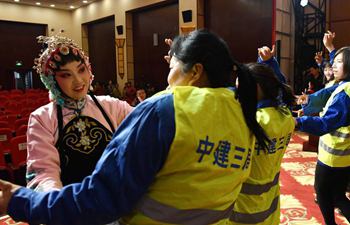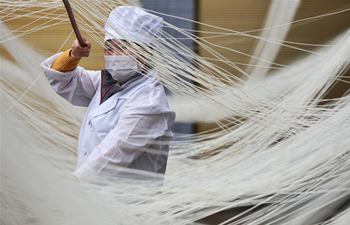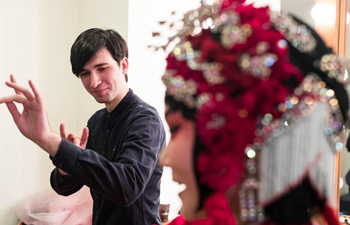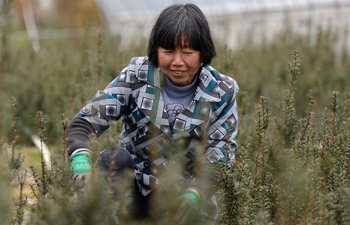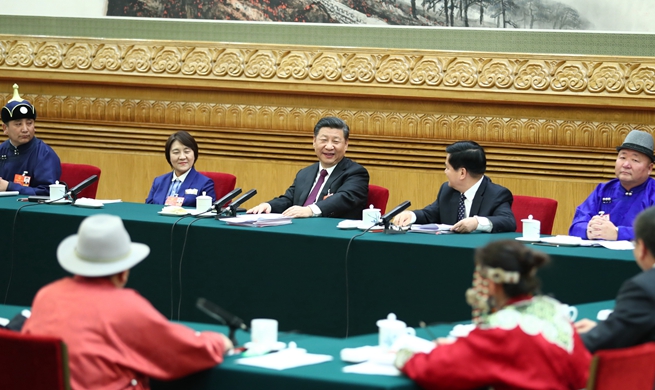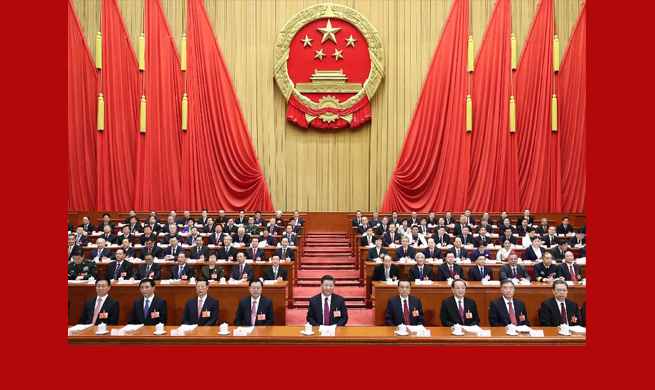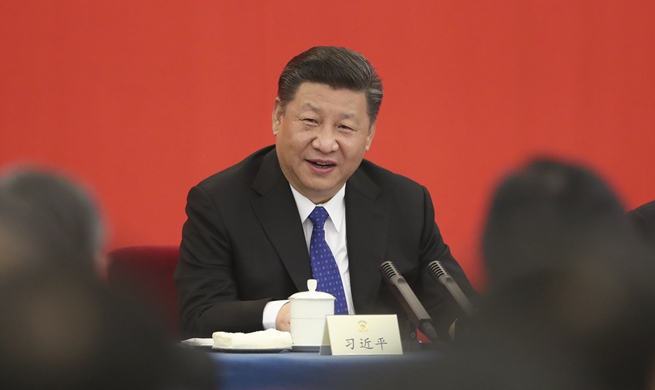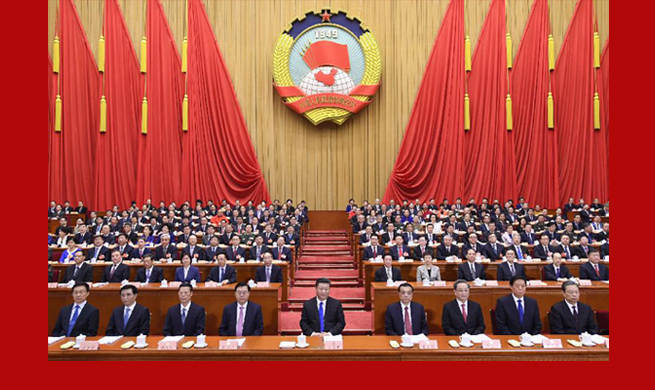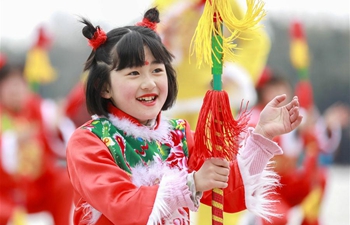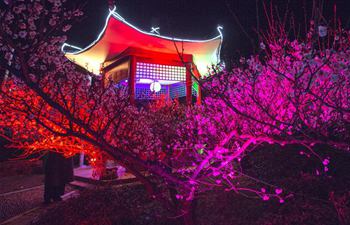by Burak Akinci
ANKARA, March 6 (Xinhua) -- The Arab world's largest private broadcaster has stopped showing Turkish television programs, a seemingly politically-motivated move which comes amid a rift between Ankara and some Arab countries led by Saudi Arabia.
Turkish soap operas are a big hit across the Middle East, but the decision to pull the plug came into effect at Dubai-based MBC Group -- which is controlled by Saudi businessman Walid al-Ibrahim and other Saudi investors -- last week, a company spokesman said.
MBC spokesman Mazen Hayek said he believed the decision could affect other media outlets in the near future.
Meanwhile, Dubai Television's website indicated that at least one Turkish-made show was still scheduled.
Saudi Arabia and the United Arab Emirates (UAE) see Turkey's ruling Justice and Development Party (AKP), founded and headed by President Recep Tayyip Erdogan, as a friend of Islamist forces, which both Arab countries oppose across the region.
Relations were further strained by Ankara's support for Qatar after Saudi Arabia, the UAE, Bahrain and Egypt imposed sanctions on Doha last year over its alleged support for Islamist militants.
Qatar, which is strongly supported by the Turkish government who has a military base in this country, denies the accusations.
Saudi-Turkish relations have plunged in recent months after years of solid background. Besides backing Qatar, Ankara also maintains cordial ties with Iran, the Saudi kingdom's regional rival for political influence in Syria and Yemen.
Hayek said the decision includes all kinds of Turkish programs, and immediately affects six shows. It was likely to hit revenues and viewership built up over more than 10 years, he added.
However, it also opened opportunities for program makers in countries such as Qatar and Lebanon to fill the gap. "This may be an incentive for Arab producers to create high-level Arabic drama that can be a good alternative to those taken off the air," Hayek said.
Turkish Culture and Tourism Minister Numan Kurtulmus reacted to the decision as being "unreasonable and meaningless."
"I hope that relevant institutions will rethink that decision because Turkish series reach millions of viewers in the Middle East and are very popular. Politicians cannot decide who can watch or not a show, those days are over," he told reporters in Ankara on Tuesday.
Turkish TV is big business. According to a report by Forbes Turkey, there are more than 90 privately owned production companies churning out episodes that cost between 200,000 U.S. dollars and 700,000 dollars to make.
The series are exported to a total of 140 countries and in 2017, the combined gross revenue of the production companies was around 350 million dollars, according to official data from the Turkish Culture and Tourism Ministry.
The industry aims to reach a revenue of 1 billion dollars and some 500 million viewers in 2023. Turkey is now second only to the United States in terms of the production and global distribution of TV dramas.
Turkish series are often dubbed into Arabic and have become a cultural phenomenon among Arab viewers so much so that Turkish actors caused frenzy in the countries where their shows was aired.
"Magnificent Century", a period drama about the life of an Ottoman sultan and his powerful wife, aired in 47 countries; and "What Is Fatmagul's Fault?" a show about a rape victim who takes her perpetrators to court, aired in 37 countries.
In much of the Middle East, popular Turkish shows are broadcast daily during the holy Muslim month of Ramadan, with families gathering around televisions after breaking fast at sunset.
However, conservative circles have in Arab countries attacked that sometimes the Turkish dramas include premarital sex scenes and some of the actors consuming alcohol, which is strictly prohibited in the Muslim faith.
The success of Turkish dramas, reportedly watched by tens of millions of viewers, prompted a frenzy of Turkish culture making Turkey a highly sought tourist and also an investment destination from the Arab world.
Istanbul especially, ancient capital of the Byzantine and Ottoman Empires, setting of most of the shows benefited from the popularity of the series with many Arab viewers buying houses in the historic city.
"This is an unfortunate decision because we know that Turkish shows are quite popular in the Gulf countries but also in other parts of the world," said a source close to the Turkish government, deploring that cultural relations fall victim of "some disagreements between Muslim countries."
Upon MBC's decision, film sector representatives in Turkey immediately started discussing alternative solutions to offer TV series to their audiences in the Arab region, reported on Tuesday Turkish Sabah daily.
The internet and streaming facilities could possibly replace the industries losses, suggested Ziyad Varol, manager at Turkey's ATV channel.
"Turkish content reaches audiences no matter what," Varol said, quoted by Sabah, adding that loyal audiences in the Middle East somehow find a way to watch Turkish series.
Since it first came to power in 2002, the AKP government deployed considerable efforts to retain close ties with the Arab world, considered by government authorities to have been neglected because of Turkey's traditional secularists leniency towards the western world and its institutions.
Erdogan, then prime minister, made several highly mediatised visits to Arab capitals in order to promote politics, economics and especially cultural ties in line of a so-called soft power approach.
State-owned Turkish Radio and Television launched an Arabic-speaking channel and another one based on news in order to reach out to the Arab world who still remains the biggest market for Turkish series.





